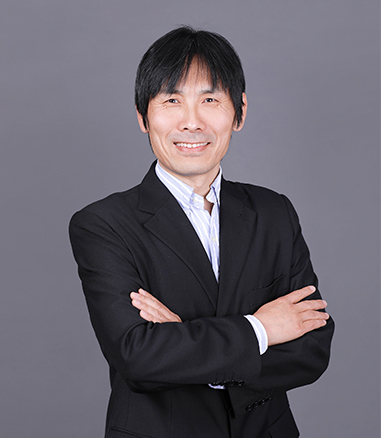

Xie Guangming:
Professor, College of Engineering, Peking University
E-mail: xiegming@pku.edu.cn
Research ID: http://www.researcherid.com/rid/A-5230-2011
Bolg: http://bbs.sciencenet.cn/home.php?mod=space&uid=100463&view=xiegming
Education:
1991-1996, B.S. degrees in both applied mathematics and electronic and computer technology, Department Of Mathematical Sciences,Tsinghua University
1996-1998, M.E. degree in control theory and control engineering, Department of Automation,Tsinghua University
1998-2001, PH.D degree in control theory and control engineering, Department of Automation,Tsinghua University
Professional Experiences:
2001-2003, Postdoc, Department of Mechanics, Peking University
2003-2005, Lecturer, Department of Mechanics, Peking University
2005-2013, Associate Professor, College of Engineering, Peking University
2013-Now, Professor, College of Engineering, Peking University
2007-Now, PH.D Supervisor, College of Engineering, Peking University
Research Interests:
Complex Systems Dynamics & Control
Intellgent Biomimetic Robot
Multi-robot Systems and Control
Selected Publications:
1.C Zhang, J Zhang, G Xie, L Wang, M Perc, Evolution of Interactions and Cooperation in the Spatial Prisoner's Dilemma Game, PLoS ONE, 6 (10), e26724, 2011.
2. Y Zhang, F Fu, T Wu, GXie, L Wang, Inertia in strategy switching transforms the strategy evolution, Physical Review E, 84 (6), 066103, 2011.
3. Zhang Chunyan, Jianlei Zhang, Xie Guangming,Wang Long,Diversity of game strategies promotes the evolution of cooperation in public goods games, EPL, 90(6), pp 68005, 2010.
4. K Liu, G Xie, L Wang, Consensus for multi‐agent systems under double integrator dynamics with time‐varying communication delays, to be published in International Journal of Robust and Nonlinear Control, 2011.
5. Liu Huiyang, Xie Guangming, Wang Long, Necessary and sufficient conditions for solving consensus problems of double-integrator dynamics via sampled control International Journal of Robust and Nonlinear Control, 20(15), pp 1706-1722, 2010.
6. G Xie, L Wang, Consensus control for a class of networks of dynamic agents, International Journal of Robust and Nonlinear Control, 17 (10‐11), 941-959, 2007.
7. C Wang, G Xie, L Wang, M Cao, CPG-based locomotion control of a robotic fish: using linear oscillators and reducing control parameters via PSO, International Journal of Innovative Computing, Information and Control, 7(7B), 4237-4249, 2011.
8. Hu Yonghui, Zhao Wei, Xie Guangming, Wang Long, Development and target following of vision-based autonomous robotic fish, Robotica, 27(7), 1075-1089, 2009.
9. Zhang Dandan, Xie Guangming, Yu Junzhi, Wang Long, Adaptive task assignment for multiple mobile robots via swarm intelligence approach, Robotics and Autonomous Systems, 55(7), 572-588, 2007.
10. J Yu, L Wang, G Xie, Disturbance rejection of switched systems subject to actuator saturation, Transactions of the Institute of Measurement and Control, 32 (6), 603, 2011.
11. Xie Guangming, Wang Long, Periodic stabilizability of switched linear control systems, Automatica, 45(9), 2141-2148, 2009.
12. G Xie, L Wang, Controllability and stabilizability of switched linear-systems, Systems &Control Letters, 48 (2), 135-155, 2003.
13. Wen J, Wang C, Xie G. Asynchronous distributed event-triggered circle formation of multi-agent systems[J]. Neurocomputing, 2018, 295: 118-126.
14. Zheng X, Wang C, Fan R, et al. Artificial lateral line based local sensing between two adjacent robotic fish[J]. Bioinspiration & biomimetics, 2017, 13(1): 016002.
15. Wang C, Xie G. Limit-Cycle-Based Decoupled Design of Circle Formation Control with Collision Avoidance for Anonymous Agents in a Plane[J]. IEEE Transactions on Automatic Control, 2017, 62(12): 6560-6567.
16. Wang C, Chen X, Xie G, et al. Emergence of leadership in a robotic fish group under diverging individual personality traits[J]. Royal Society open science, 2017, 4(5): 161015.